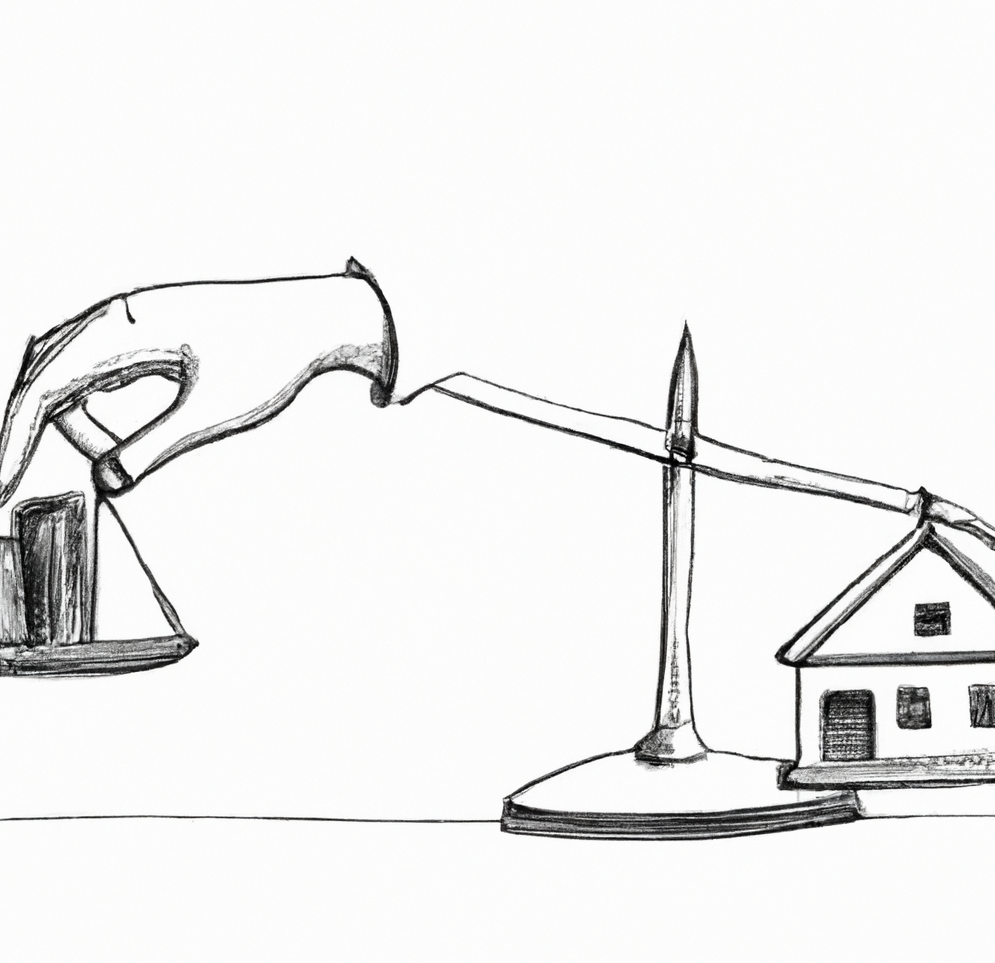Embarking on the intricate journey of commercial leases may seem overwhelming, particularly for emerging business owners. Nevertheless, we bring you this comprehensive guide to illuminate the world of commercial leases, emphasizing the invaluable partnership with a commercial lease attorney that can fortify the success of your business in its rented commercial space.
Armed with rich expertise from my training at the prestigious Lowndes, Drosdick, Doster, Kantor, & Reed law firm, and a wealth of experience handling all aspects of commercial leases, I’ll guide you through the role of commercial lease attorneys in crafting, analyzing, and negotiating lease agreements. We’ll explore the variety of commercial leases, the significance of common lease terms, dispute resolution, and the process of selecting the most fitting attorney to cater to your needs. We’ll also tackle the intersection of intellectual property, law firms, and commercial leases, the implications of property taxes on commercial leases, relevant real estate law, and office space considerations for business tenants. Let’s begin this enlightening journey!

Short Summary
- A commercial lease attorney safeguards business interests and guarantees precision during the drafting, review, or negotiation of a commercial lease.
- Various types of leases such as gross, net, and percentage exist. Comprehending common terms like rent & maintenance is critical for both landlords & tenants.
- Also, it’s important to incorporate considerations of intellectual property law, real estate law, and office space into the decision-making process to ensure tenant needs are fully met.
The Vital Role of a Commercial Lease Attorney

Commercial lease attorneys are instrumental in aiding landlords and tenants to decode the complex universe of commercial leases. Proficient in drafting, analyzing, and negotiating lease agreements, these legal professionals ensure that each detail of these contracts is balanced and fair for all involved parties. This role becomes even more crucial for small business owners given the nuanced nature of commercial leases compared to their residential counterparts.
Lawyers specializing in commercial leases strive to ensure business owners are paying an equitable price for their rented space and that no hidden surprises crop up for either party once the agreement is finalized. Their expertise serves as an invaluable asset in securing your business interests and sidestepping potential pitfalls down the line.
Drafting Commercial Leases
When crafting commercial lease agreements, attorneys need to be attentive to specific provisions to safeguard the tenant’s rights. These encompass exclusive-use clauses, which limit the landlord’s capacity to lease neighboring spaces to rival businesses, explicit maintenance expectations, and exit clauses to shield tenants during times of financial hardship.
For instance, a hair salon tenant may benefit from an exclusive-use clause that bars the landlord from leasing adjacent spaces to other hair salons within the same building or shopping center. Such clauses are pivotal in protecting tenant rights, offering them the peace of mind to operate their business free from the threat of direct competition within the same property.
Scrutinizing Commercial Lease Agreements
Before soliciting a real estate lawyer to scrutinize your commercial lease, it’s vital to understand the associated costs and whether you will be billed for itemized expenses. Familiarize yourself with the “cap” in a fee arrangement with a commercial lease attorney, which is the predetermined maximum amount the lawyer has consented to charge for their services.
Moreover, it’s important to inquire about billing increments, the smallest units of time for which the lawyer will bill, regardless of whether the task is completed in a shorter timeframe. A comprehensive understanding of the expenses tied to hiring a commercial lease attorney to review your lease agreement helps avert potential disputes or miscommunication in the future.
Negotiating Lease Terms
Negotiating lease terms is a fundamental component of finalizing a commercial lease agreement. Lawyers like those at Montague Law, armed with my experience in handling commercial leases at all levels, including those that are significant parts of deals and/or litigation, frequently participate in negotiations and litigations with commercial landlords to modify or update specific terms, ensuring that the lessee’s rights and interests are fully safeguarded.
When negotiating a commercial lease, it is essential to be aware of the terms of the lease, the rights and obligations of all parties involved, and the potential risks and rewards of the agreement. Commercial lease attorneys can provide invaluable assistance in comprehending the conditions of the lease, negotiating favorable terms, and safeguarding the rights and interests of their clients.
In the process of negotiating a commercial lease, it’s crucial to fully comprehend the lease terms, the responsibilities and rights of all involved parties, as well as the potential risks and rewards inherent in the agreement. Commercial lease attorneys offer irreplaceable assistance in interpreting the conditions of the lease, negotiating beneficial terms, and protecting the rights and interests of their clients.
As a graduate of the top-tier University of Florida Law School, I bring a wealth of knowledge and experience to the table, ensuring that your commercial lease agreements are handled with the utmost professionalism and meticulous attention to detail. Rest assured, with the right legal guidance, you can navigate the complex world of commercial leases with confidence.
Commercial leases encompass a range of essential terms that delineate the rights and responsibilities of all parties involved. The following list outlines the most common material terms found in a commercial lease:
- Rent: The lease outlines the payment amount that the tenant must deliver to the landlord for use of the space. It designates the due date, rent amount, and provisions for any potential rent increases.
- Lease Term: The lease term is the duration of the lease, stipulating the start and end dates. It may also detail options to renew the lease and provide specifics regarding how and when these options can be executed.
- Security Deposit: This is a pre-determined sum that the tenant gives to the landlord as a form of security for abiding by the lease obligations. The lease will specify the amount, conditions for its return, and circumstances under which the landlord can withhold it, such as for unpaid rent or damages.
- Maintenance and Repairs: This term delineates who (the landlord or the tenant) is accountable for maintaining and repairing various parts of the property. It often includes responsibilities for common areas, the individual leased premises, structural components, HVAC systems, and more.
- Insurance: The lease should define the insurance requirements for both the landlord and tenant. Landlords typically require tenants to have specific types of insurance, such as liability insurance, while they maintain insurance on the building itself.
- Use of the Property: This term explicitly states the allowable uses of the property. It should be clearly indicated if the tenant plans to use the property for a specific purpose (like operating a specific type of business) to prevent potential disputes.
- Improvements and Modifications: If the tenant wishes to alter or improve the leased premises to accommodate their business needs, the lease should outline the rules for making these changes. This often includes who pays for improvements, who owns the improvements after the lease term, and whether the tenant is required to restore the space to its original condition upon lease termination.
- Termination: The lease will specify the conditions under which the lease can be prematurely terminated by either party. Reasons might include breaches of the lease terms, destruction of the property, or failure to pay rent on the part of the tenant.
- Subletting and Assignment: This term outlines whether the tenant has the option to lease the property to a third party (subletting) or transfer the lease to another party (assignment). If permitted, the lease should specify any necessary conditions.
- Dispute Resolution: The lease should detail how disputes between the landlord and tenant will be resolved, such as through negotiation, mediation, arbitration, or litigation.
Commercial leases can be intricate and highly specific based on the unique property and business needs of the tenant. As such, it’s always advisable to consult with a commercial lease attorney like those at Montague Law, who can provide expert guidance and ensure the lease is optimized for your best interests.
Types of Commercial Leases

Decoding Common Commercial Lease Terms
In commercial lease agreements, it’s paramount to comprehend the frequently used terms within the contract. These generally encompass rent, maintenance, insurance, taxes, and utilities. Unlike in residential leases where landlords are usually responsible for maintenance, commercial leases dictate whether the tenant or the landlord bears responsibility for property insurance, taxes, and utilities. These may either be a separate payment from the rent or included within the monthly rental cost.
A clear understanding of these commonplace lease terms fosters a common ground between landlords and tenants when formalizing a commercial lease agreement. This shared understanding aids in circumventing potential disputes and misunderstandings in the future.
Resolving Commercial Lease Disputes
Commercial lease attorneys provide invaluable assistance in resolving disputes between tenants and landlords. Their expertise encompasses representation in negotiations, mediations, and court proceedings, along with guidance on the most appropriate course of action in varying disputes.
If a disagreement arises concerning an existing lease, a skilled commercial lease attorney can help resolve the issue, potentially avoiding eviction, financial losses, legal costs, or unnecessary liabilities. It is essential to engage a competent legal professional to protect your rights and your business’s interests.
Choosing the Right Commercial Lease Attorney
When selecting a commercial lease attorney, consider factors such as their experience, availability, fees, and references. Meeting with each potential attorney to evaluate their qualifications is recommended to make an informed decision about representation.
As an experienced attorney at Montague Law, I offer comprehensive business law services, ensuring clients receive thorough attention. My extensive legal experience, derived from serving as both in-house and outside counsel for businesses of various sizes, combined with my dedication to providing responsive and transparent service, makes me a preferred choice for your commercial lease legal needs.
The Impact of Property Taxes on Commercial Leases

Property taxes can significantly affect commercial leases. These taxes are imposed by local governments on real estate, including commercial buildings and land, and may result in increased costs for tenants if the landlord incorporates some or all of the property tax expense into the lease agreement. The lease agreement should clearly stipulate how property taxes are allocated between the landlord and tenant.
Including a clause that outlines the respective responsibilities of the landlord and tenant regarding property tax payment is crucial when drafting a commercial lease agreement. Understanding the impact of property taxes on commercial leases can ensure both parties are aware of their financial obligations and prevent potential disagreements.
Real Estate Law and Commercial Leases
Real estate law and commercial leases are intrinsically linked. It establishes the legal bond between the landlord and tenant, demarcates the rights and responsibilities of both parties, and assures that the lease agreement is legally binding. Typically, the lease remains in effect as long as the landlord provides a safe and habitable space for the tenant, who in turn, must pay the rent and adhere to the terms of the lease.
A commercial real estate attorney, like myself at Montague Law, can facilitate drafting, reviewing, and negotiating commercial leases for businesses, while also offering advice on legal matters related to commercial leases, including zoning laws, landlord-tenant laws, and other real estate laws. This expertise proves invaluable in ensuring a smooth leasing process for both landlords and tenants.
Office Space Considerations for Business Tenants
When searching for office space, business tenants should consider factors such as floor area, rental budget, location, transportation, parking accessibility, visibility, local amenities, and the building’s reputation. The office space should align with the company’s identity, ethos, and values, while providing necessary facilities such as individual focus spaces and private phone rooms for employees.
Location is especially vital as it impacts the business’s visibility, the accessibility of transportation and parking, and the proximity to local amenities. Size, amenities, and cost are equally significant considerations when choosing an office space for your business. A careful evaluation of these factors will help business tenants find the ideal office space that meets their needs.
Summary
In summary, mastering the intricacies of commercial leases and comprehending the integral role that commercial lease attorneys play are crucial for both landlords and tenants navigating the commercial real estate landscape. Commercial lease attorneys, armed with a wealth of expertise in drafting, scrutinizing, and negotiating lease agreements, and providing advice on intellectual property law, property taxes, and real estate law, serve as an indispensable ally in streamlining the leasing process for businesses.
By developing a comprehensive understanding of the various types of commercial leasing space and leases, familiarizing oneself with common lease terms, and delving into the subtleties of negotiating lease agreements, both landlords and tenants are empowered to make informed decisions that safeguard their interests. With the guidance of a seasoned commercial lease attorney, like those at Montague Law, businesses can prosper within their leased spaces, enabling them to concentrate on their true goal: achieving success.
Frequently Asked Questions
What is the most important consideration in a commercial lease?
The cornerstone in any commercial lease agreement revolves around comprehending the rent structure. This encapsulates establishing a firm rent amount and understanding any prospective escalations in your rent payment throughout the lease term. A diligent assessment of these terms will ensure financial stability over the duration of your lease period.
What is the minimum term for a commercial lease?
The standard minimum term for a commercial lease in the US generally ranges from three to five years. This duration allows sufficient time for the landlord and tenant to negotiate the terms of their agreement and ensures a steady stream of rental income for the landlord over an extended period. The length of the lease term holds significance for both parties: it enables the tenant to plan ahead and guarantees the landlord a consistent income flow.
What are a landlord’s responsibilities in a commercial lease in the US?
A landlord is responsible for providing a safe and comfortable environment for their tenants. This includes ensuring that the property is fit for purpose, all repairs and maintenance are carried out in a timely cost effective manner,, and that any fixtures and fittings they own remain in good condition.
The tenant must be clear on their responsibilities when it comes to the safety and maintenance of any fittings and fixtures they may have installed.
What are the typical legal fees for drafting a commercial lease in the US?
At Montague Law, our commercial lease attorneys typically charge based on the complexity of the lease and the lawyer’s experience level. Fees can range widely, but a general estimate might be anywhere between $1,000 and $5,000. It’s important to note that this is an approximation and can vary based on individual circumstances.
How much do lawyers charge to review a commercial lease?
On average, commercial lease reviews typically cost between $500 and $3,000. Hourly rates can range from $200-$400 per hour depending on the lawyer and size of the business.


